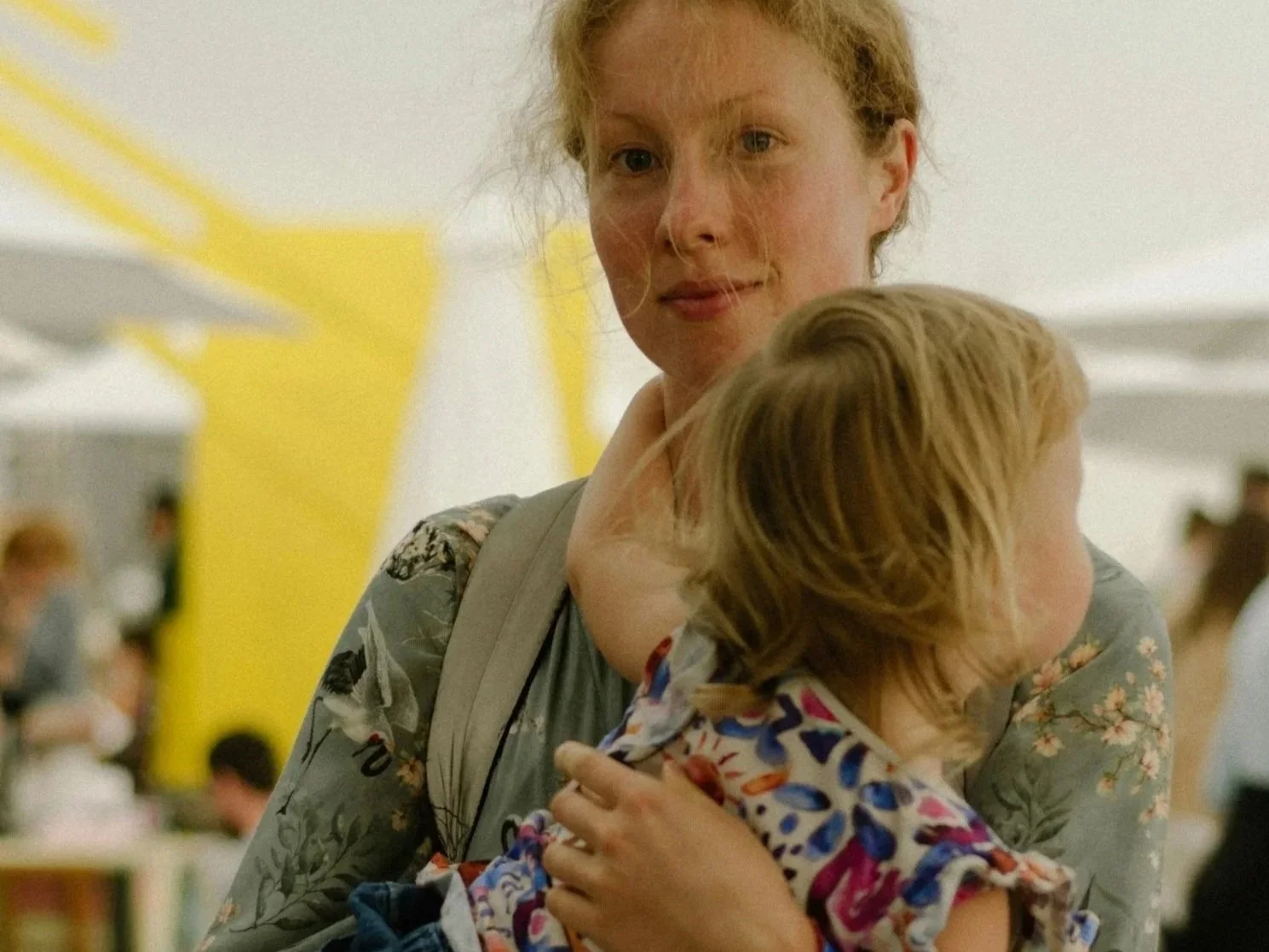The Grove

Who Decided What a Woman's Body Should Look Like — And Why It's Time to Stop Listening
Who decided what a woman's body should look like? When you start pulling that thread, the answer is uncomfortable. The beauty standards we've internalized weren't designed for our wellbeing — they were designed to keep us insecure and desperate to stop the clock and roll it back. We don’t have to listen to these standards any more.

The Solve It Grid: A Color-Coded Approach to Building Your Balanced Energy Diet
Feeling stuck in a cycle of chaos and collapse? Dr. Tamara Rosier's Solve It Grid helps you understand where your energy goes each day. Learn how color-coding your tasks—red (urgent), yellow (mundane), green (energizing), and blue (depleting)—can help you build a balanced energy diet that actually works with your brain, not against it.

“Just Stop Thinking About It,” Doesn’t Work for OCD
OCD involves intrusive thoughts—unwanted, disturbing thoughts that feel outside your control and trigger intense fear or disgust. You can't simply "stop thinking about it." The harder you try, the stronger the thoughts become.
OCD traps people in a cycle: obsessions (unwanted intrusive thoughts) trigger compulsions (repetitive behaviors to reduce anxiety). The relief is temporary, reinforcing the cycle.
Perinatal OCD affects 2-3% of parents, causing obsessions about baby's safety and excessive checking or cleaning. These thoughts are deeply disturbing to parents experiencing them.
The good news? OCD responds well to specialized treatment like Exposure and Response Prevention therapy. Read this post for more information on OCD.

Finding YOU Again: Rediscovering Your Identity While Navigating New Parenthood
In tandem with Breezy Babies we discuss the identity shift that happens when you become a new parent. Click the link for the full post and to learn more about Breezy Babies.

Postpartum Nutrition: The Science Behind Fourth Trimester Recovery
Postpartum nutrition isn't just about "getting your body back"—it's about giving your body what it needs to heal, adapt, and sustain you through the demands of new parenthood.
The fourth trimester is a critical window for physical and emotional recovery, yet it's often the time when parents are least equipped to prioritize their own nourishment. Between feeding schedules, diaper changes, and survival-mode exhaustion, cooking a balanced meal can feel impossible.
What you eat matters. Protein supports tissue repair. Iron replenishes what was lost during delivery. Omega-3s stabilize mood (and may help protect against postpartum mood disorders). Fiber keeps your digestive system functioning.

The Lasting Impact of Mission Trauma: Understanding Post-Mission Mental Health
Research by Madelin Pepper reveals that LDS mission stress often causes lasting mental health impacts, with 24 of 39 survey respondents reporting continued effects. Common issues include anxiety, depression, PTSD, and suicidal ideation, exacerbated by perfectionism and lack of support. Healing pathways include psychoeducation, therapy, and improved institutional mental health approaches.

Understanding Mental Health
Mental health encompasses our emotional, psychological, and social well-being, affecting how we think, feel, and act throughout life. It exists on a spectrum influenced by biological factors, life experiences, and lifestyle choices. Maternal mental health specifically addresses women's well-being during pregnancy and postpartum periods. Both are essential components of overall health, with various effective treatments and support options available.

The Loneliness of Motherhood
Nearly 1 in 7 mothers experience loneliness during motherhood. It’s a predictable response to identity shifts, physical isolation, and unrealistic social expectations. Research shows there are ways to effectively reduce maternal loneliness.

Simple Ways to Reduce Stress in Your Home Environment
As summer vacation winds down and children prepare to return to school, many families find themselves navigating a whirlwind of emotions and stress. The transition from carefree summer days to structured school routines can be overwhelming for both children and parents. However, creating a calm, supportive home environment can significantly ease this transition and provide a foundation for managing stress throughout the school year.

Secondary Trauma in Birth Work: When to Seek Therapy
Secondary trauma affects 25-35% of birth workers worldwide. As doulas, midwives, nurses & doctors, the empathy that makes us excellent at our jobs can also leave us vulnerable to emotional harm. Even when births have positive outcomes, providers can still experience trauma. Your emotional response is valid—trauma is subjective. Professional support helps you process the intensity of birth work, maintain boundaries, and stay resilient.

Research Confirms What We Know: Mothers Need Support—And We're Here to Provide It
New research validates what mothers everywhere are experiencing: maternal mental health is in crisis. Only 1 in 4 mothers report excellent mental health today, down from nearly 4 in 10 just seven years ago. If you're struggling, you're not alone. Housing costs, childcare burdens, and systemic pressures are affecting mothers nationwide. The good news? There are proven solutions and professionals who understand exactly what you're going through.

Beyond the Baby Blues: New Research Reveals the Hidden Reality of Perinatal Mental Health
Important research from our very own Allie McGee, CSW, on perinatal mental health in Utah - and the findings highlight experiences that often get overlooked.
What she discovered goes far beyond the typical "baby blues" conversation. We're talking about profound identity loss, unexpected coping strategies, and barriers that exist at every level of our healthcare system.
The most compelling finding? "I didn't know who I was anymore" - a reality that ALL participants experienced but rarely gets discussed.

Behind the Name Tag: How Gender Shapes LDS Missionary Experiences
Research from Madelin Pepper reveals female LDS missionaries face additional stressors including appearance pressures, weight-shaming, dismissal of concerns, and limited leadership. These gender-based challenges often go unacknowledged but significantly impact mental health. The study suggests standardized support systems and addressing systemic gender disparities could improve missionary experiences.

Understanding Acceptance and Commitment Therapy (ACT)
Acceptance and Commitment Therapy (ACT) helps people develop psychological flexibility by accepting difficult thoughts and feelings while taking actions aligned with personal values. ACT benefits those with anxiety, depression, chronic pain, and other challenges through its six core processes: acceptance, cognitive defusion, present moment awareness, self-as-context, values clarification, and committed action.

Beyond Awareness: Addressing the Social Determinants of Mental Health
True mental health awareness must go beyond reducing stigma and promoting individual treatment. It requires acknowledging and addressing the social conditions that create and perpetuate mental health challenges.

When the Mission Takes a Toll: New Research on Stress and Mental Health in LDS Missionaries
Uncovering the Mental Health Impact of LDS Missions
Madelin Pepper's eye-opening research reveals a concerning reality: 95% of LDS missionaries experience significant stress during service, with 62% reporting lasting negative mental health effects. Beyond the statistics, her work identifies key contributors: perfectionism culture, privacy limitations, and mismatched expectations. Most importantly, these struggles often persist long after missionaries return home—highlighting an urgent need for comprehensive support throughout the missionary journey.

Understanding Trauma: Beyond the Buzzword
Trauma goes beyond everyday stress—it rewires the brain and nervous system after overwhelming events. Learn to recognize trauma's physical and emotional symptoms, which can emerge years later. At our practice, we offer specialized healing through IFS, Lifespan Integration, and ACT therapies, helping clients achieve not just recovery but post-traumatic growth.

Self-Care Strategies That Actually Work for New Mothers
This guide offers practical self-care strategies for new mothers, emphasizing both physical and mental wellbeing. From micro-moments of mindfulness to professional mental health support, these approaches acknowledge the realities of life with a newborn while prioritizing a mother's needs. Remember: caring for yourself isn't optional—it's essential for sustainable, healthy motherhood.

Beyond Soulmates: Cultivating Connections That Complete You
Explore why we shouldn't expect romantic partners to fulfill all our social needs. Challenges the "main character" mindset of modern society, emphasizing the importance of maintaining diverse friendships and showing up consistently for others. Learn why building a balanced social network leads to richer, more fulfilling relationships.

Embracing Imperfect Action
Small discomforts can feel overwhelming, but they don't define our reality. Building emotional resilience requires pushing through off days rather than retreating. While society often encourages avoiding discomfort to "protect your peace," growth often comes from leaning into discomfort. Change happens through action—especially imperfect action. By recognizing that current emotions don’t predict future feelings, we can reshape our experiences and foster growth.
